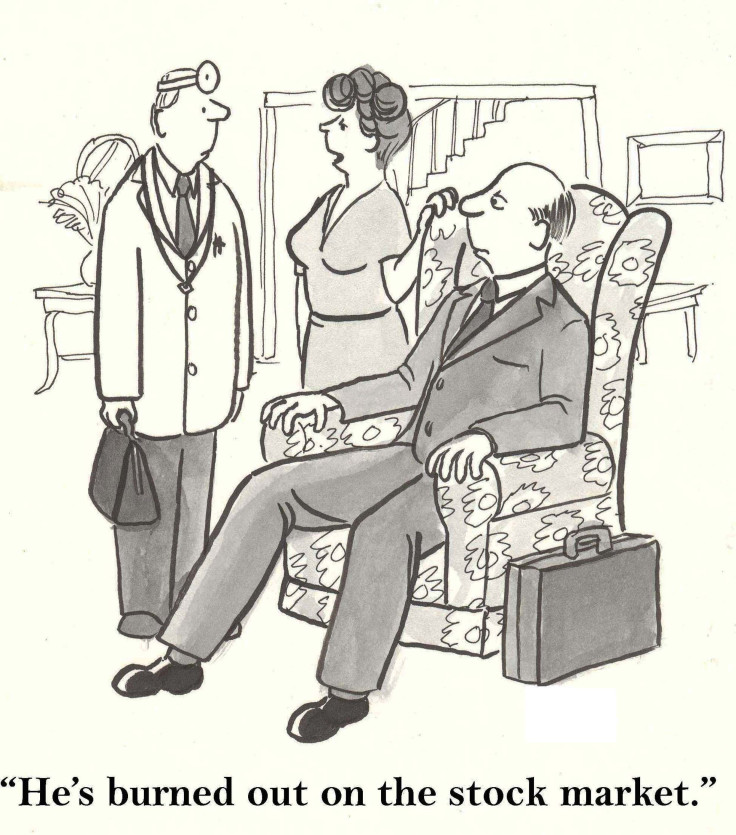Stress Hormone Cortisol Linked To Financial Market Volitility, As Severe Stress Lowers Appetite For Risk

Though automated trading accounts for much of today’s financial markets volume, significant movement continues to be driven by simple human physiology as indices rise and fall with levels of testosterone and cortisol across the exchange.
A new study from Cambridge University bolsters previous evidence supporting the primacy of male hormones in driving a market of human traders, as levels of testosterone and cortisol fluctuate in relation to one another. In research published Tuesday in PNAS, former Wall Street trader John Coates found a 68 percent increase in average levels of cortisol, a stress hormone, among a group of City of London traders over eight days of increasingly volatile trading.

There is a powerful physiological mechanism at work in the markets, and no one — not the traders, not the risk managers, not the policy makers — is aware of it,” Coates told The Financial Times. “This assumption, mostly hidden from view, underlies almost every economic model and, it turns out, every indicator of market sentiment.”
Indeed, the financial industry even refers to some human-based market activity as “rational trading,” with orders to buy and sell based on “corporate-performance-based investing strategies, as asserted by James MacGregor, vice chairman of Wall Street’s Abernathy MacGregor Group Inc. But whether trading rationally or chasing arbitrage for a quick buck, investors remain at the mercy of their biology, Coates says.
In a Cambridge hospital, the former trader successfully reverse-engineered his findings on Wall Street with a group of volunteers who took hydrocortisone tablets during an eight-day period, raising cortisol levels by 68 percent. In playing an incentivized risk-taking game next, appetite for risk fell by as much as 44 percent among stressed volunteers in the double-blind study.
Those findings alone turn many influential models in economics, finance, and neurobiology that assume risk preferences remain stable as a personality trait. “In this study, we find they are not. We find that they become more risk-averse and that the overweighting of small probabilities becomes more exaggerated among men relative to women,” Coates wrote. “Physiologically induced shifts in risk preference may thus be a cause of market instability that has been hitherto overlooked in economists, risk managers, and central bankers.”
As a result, many individuals and groups of traders may freeze during times of volatility, overestimating in many cases the risk of new opportunities, according to Coates. “The stress response may thereby exacerbate market instability and prolong crisis,” just when the market needs a bit of… testosterone.
Sources:
Coates J, Gurnella M, Fletcherd PC, Graggabera J, Schaffnerc M, Pagec L. Cortisol Shifts Financial Risk Preference. PNAS. 2014.
Coates J, Herbert J. Endogenous Steroids And Financial Risk Taking On A London Trading Floor. PNAS. 2007



























